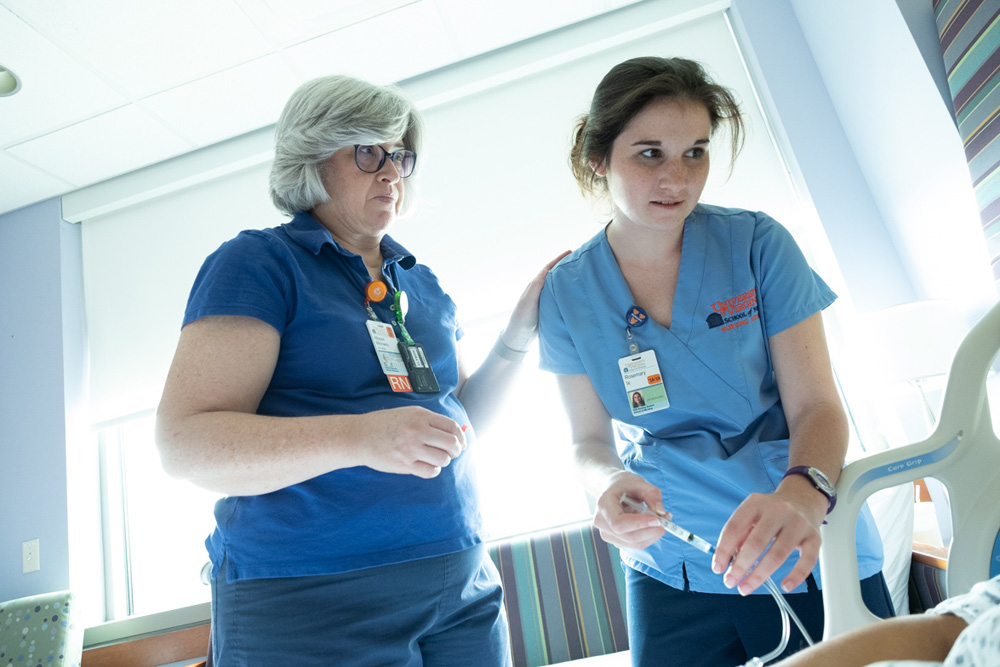Op-Ed: To Meet Virginians' Healthcare Needs, Train More NPs

From the Richmond Times Dispatch, May 10, 2020
The Virginia General Assembly approved expansion of Medicaid last year, providing access to health care for 400,000 Virginians. The question is: Who will provide care to all of these citizens?
The American Association of Medical Colleges estimates the nation will face a shortage of primary care physicians until 2032. One viable option for providing high-quality primary care is nurse practitioners. Evidence shows that care provided by nurse practitioners increases patient access and reduces overall health care expenditures. Investing in the training of nurse practitioners can help close this gap.
400,000+
Additional number of Virginians now covered by Medicaid after its 2019 expansion
Prior to Medicaid expansion, 10 Virginia counties demonstrated persistent need for primary care providers for three to five decades. Many of these counties have a ratio of more than 6,000 patients to one provider.
Nurse practitioners are the most likely clinicians to provide care to underserved and disadvantaged groups, such as non-white, poor or uninsured patients. Given that nurse practitioners provide high-quality primary care and are more likely to treat Medicaid recipients, it makes sense to grow this workforce to meet demand.
Expanding Virginia’s nurse practitioner workforce requires education and training. Clinicians, like those in Virginia, are likely to practice in locations where they were trained or grew up. Training more nurse practitioners in Virginia will likely lead to more nurse practitioners in the state once training ends. More than half of Virginia’s nurse practitioner workforce earned its initial professional degree in the state.
All six state-funded Virginia colleges and universities that offer nurse practitioner programs report their capacity to train nurse practitioners is limited by a shortage of preceptors who are critical for training.
Accreditation standards require that nurse practitioner students complete at least 500 hours of direct patient care experience, typically in one-on-one settings, like an apprenticeship. But unlike training for medical students, apprenticeships for nurse practitioners are not supported by federal funding.
To incentivize qualified preceptors, nursing schools are getting creative by granting them affiliate faculty status, library access and small tokens of appreciation. Still, this is not enough to guarantee a sufficient increase in preceptors.
The obvious solution, significant financial incentives, isn’t possible without raising tuition and fees. This is not ideal, though, given that nearly half of all nurse practitioners in Virginia report carrying significant education debt. The nurse practitioner apprenticeship training model is therefore in jeopardy, partially due to a lack of attractive incentives for preceptors.
Precedent exists for state legislation to provide financial incentives for qualified nurse practitioner preceptors, such as licensed physicians, physician’s assistants and advanced practice registered nurses. Five states — Georgia, Maryland, Hawaii, South Carolina and Colorado — passed legislation that provides preceptors a tax credit, as opposed to a tax deduction.
As Virginia’s General Assembly considers budget planning, consideration should be given to developing the nurse practitioner workforce. Concerned citizens and forward-thinking legislators will want to support a modest investment in a budget amendment carried by Del. Cliff Hayes, D-Chesapeake (Item 295, #3h) and Sen. George Barker, D-Fairfax (Item 295, #2s) this 2020 legislative session, which would create a $500,000 nursing preceptor incentive program. This would be a supportive grant incentive program administered by the Virginia Department of Health.
Supporting the budget amendment will help more nurses become nurse practitioners and meet the health care needs of Virginians. These capable clinicians are a valuable resource in the commonwealth and deserve our support.
###
